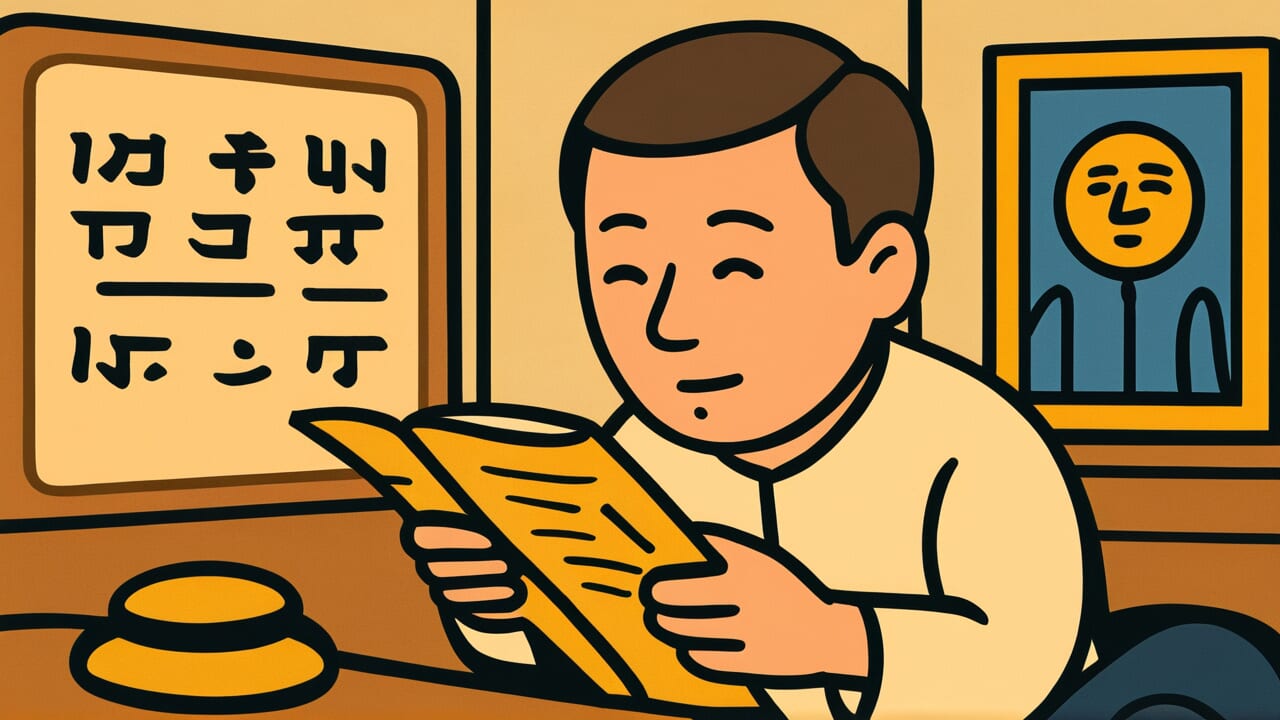How to Read “Reading sutras no one asked for”
Hito no tanomanu kyō wo yomu
Meaning of “Reading sutras no one asked for”
“Reading sutras no one asked for” means meddling in someone’s affairs when they haven’t asked for help. It describes the act of interfering or giving unwanted advice when the other person hasn’t requested assistance.
This proverb is often used for people who think they’re being kind. They may act with good intentions, but their actions only cause trouble for others.
It criticizes busybodies who interfere without being asked.
Even today, this proverb applies to people who give unsolicited advice at work or interfere too much in friendships. It shows the line between kindness and annoyance, and its meaning remains relevant.
Origin and Etymology
No clear written records explain the origin of this proverb. However, the structure of the phrase reveals an interesting background.
“Kyō” refers to Buddhist sutras. In the past, monks reading sutras was an important religious act. People prayed for the deceased, recovery from illness, or family safety through these readings.
People would invite monks when needed and offer donations for the sutra readings.
But what if a monk started reading sutras without being asked? The person would feel confused and might worry about being asked for payment.
Even the noble act of reading sutras becomes an unwelcome nuisance when nobody requested it.
This expression emerged from an era when Buddhism was deeply rooted in daily life. By using the familiar example of sutra reading, it vividly captures the essence of unwanted interference.
It teaches that even good intentions become troublesome if the other person doesn’t want them. The proverb conveys this lesson through a relatable religious practice.
Usage Examples
- He’s always reading sutras no one asked for, so everyone finds it hard to talk to him
- I don’t want to be reading sutras no one asked for, so I decided to wait until someone asks
Universal Wisdom
“Reading sutras no one asked for” has been passed down for generations because it points to a fundamental human contradiction.
Everyone has a desire to be useful to others. The wish to be kind, to help, and to do good is not bad at all.
But people also want to protect their own space and handle things at their own pace.
Here lies a deep conflict. The helper’s good intentions versus respecting the other person’s autonomy. These two sometimes clash.
Actions born from kindness can violate another person’s freedom or dignity.
This proverb teaches that true kindness requires the sensitivity to read the other person’s situation and feelings. What does the other person need? Are they really asking for help?
The wisdom to discern this is what matters most.
The difficulty of human relationships lies precisely here. Good intentions alone cannot make people happy.
Only with deep understanding and respect for others can we truly help. This proverb captures an eternal challenge in human relationships with simple words.
When AI Hears This
In information theory, even perfectly accurate information becomes “noise” if the receiver isn’t ready to receive it. Think about 100 advertising emails arriving on your phone daily.
The sender thinks it’s useful information, but if you didn’t ask for it, your brain automatically judges it as “junk to delete.”
What’s interesting is that information value isn’t determined by content quality but by the receiver’s “readiness to accept.” Shannon’s information theory measures information by “how much it reduces the receiver’s uncertainty.”
In other words, explaining something the other person isn’t wondering about has zero information value. It actually becomes a negative presence that only costs processing power.
More noteworthy is research showing that while the human brain receives about 11 million bits of information per second, it can consciously process only about 50 bits.
Unrequested information wastes limited processing capacity—it’s “bandwidth waste.”
Reading sutras no one asked for is like continuously sending signals that will definitely be blocked by the receiver’s filter. No matter how much energy the sender uses, the system achieves zero information transmission—the worst possible efficiency.
Lessons for Today
This proverb teaches you about balancing kindness and respect.
We should cherish our desire to help others while respecting their autonomy. Offering help is different from forcing it.
Develop the observation skills to determine if someone is truly struggling or needs assistance.
In modern society, this proverb applies to countless situations: unwanted advice on social media, excessive interference at work, or overprotection within families.
With remote work increasing, it’s harder to see others’ situations. We must be especially careful about one-sided intervention.
True kindness might mean being ready to respond when someone asks for help. Waiting and watching are also forms of caring.
Trusting others and acknowledging their ability to solve problems themselves shows the greatest respect.
Take a step back and think carefully so your good intentions truly benefit others.



Comments